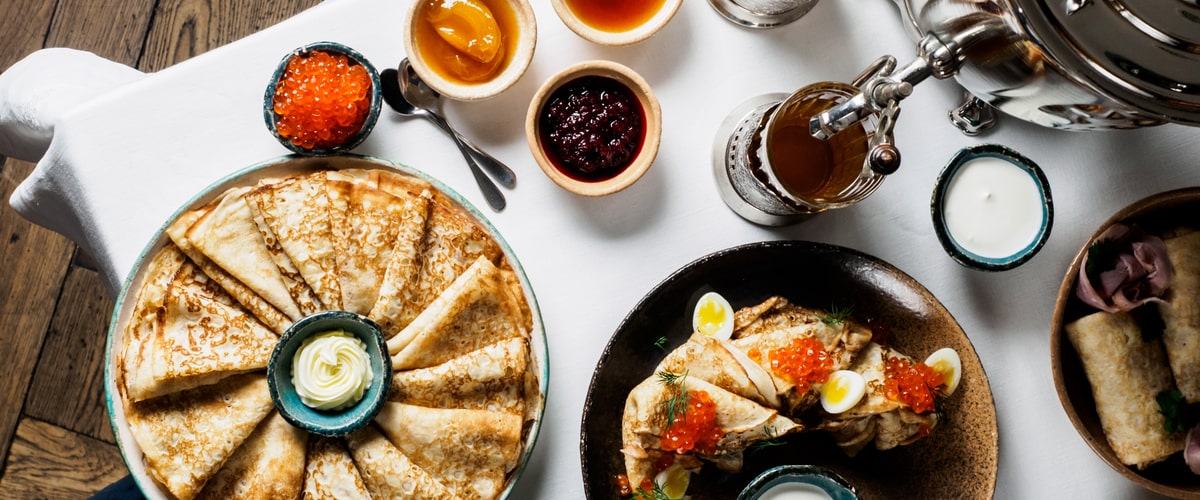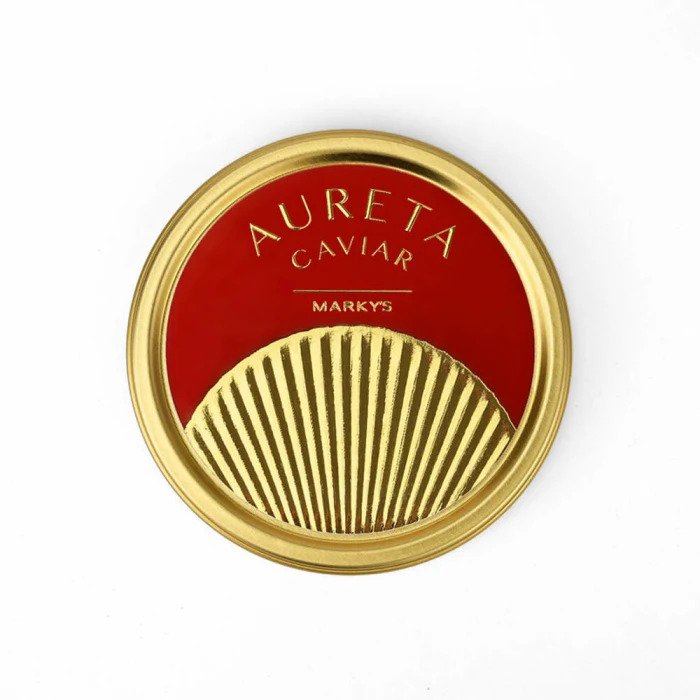The Caviar Culture of Russia: A Look at the History and Significance of this Luxurious Delicacy in Russian Cuisine
Category : Food Stories, Party Ideas, Recipes, Press Room |
Posted : Jan 12, 2023
Caviar, the luxurious and flavorful delicacy made from the eggs of sturgeon fish, has a long and rich history in Russian culture. From its origins in the Caspian Sea region to its modern-day popularity as a gourmet treat, caviar has played a significant role in Russian cuisine and society. In this article, we will take a closer look at the cultural significance of caviar in Russia and how it has evolved over time.

Origins
The origins of caviar in Russia can be traced back to ancient times, when it was a popular delicacy among the wealthy and elite. Caviar was traditionally harvested from wild sturgeon in the Caspian and Black Sea regions, and it was a symbol of wealth and status. It was often served at banquets and celebrations, and it played a central role in Russian cuisine.
As Russia industrialized and modernized, the demand for caviar increased and the industry began to evolve. In the 19th and early 20th centuries, caviar was heavily exported to Europe and the United States, and it became a sought-after luxury item around the world. In Russia, caviar was still a symbol of wealth and status, and it was often served at high-end events and celebrations.
Present Day
Today, caviar continues to play a significant role in Russian culture and cuisine. It is a popular appetizer and garnish, and it is often served at special occasions such as weddings and holidays. Caviar is also a key ingredient in many traditional Russian dishes, such as zakuski (a selection of small appetizers) and blini (crepes filled with caviar and other toppings).
In recent years, the caviar industry has undergone significant changes, as demand for the delicacy has increased and sustainable farming practices have become more prevalent. While wild sturgeon are still caught and their eggs harvested for caviar, many producers are now using farmed sturgeon to meet the demand. These farmed sturgeon are raised in controlled environments and their eggs are harvested in a more sustainable and humane way.
Despite the changes in the industry, caviar remains a luxurious and sought-after delicacy in Russia and around the world. It is enjoyed for its rich, flavorful taste and its cultural significance, and it continues to be a symbol of wealth and status in Russian society.

If you are interested in exploring the world of caviar and learning more about its cultural significance in Russia, there are many ways to do so. You can try traditional Russian dishes that feature caviar as an ingredient, visit a caviar farm or processing facility to learn about the production process, or simply enjoy a small spoonful of this luxurious delicacy as a special treat. Regardless of how you choose to experience caviar, it is sure to be a culinary adventure that you won't forget.
In addition to its cultural significance and delicious taste, caviar also has a number of potential health benefits. Caviar is high in protein and nutrients such as omega-3 fatty acids, vitamins A and D, and minerals like calcium and phosphorus. These nutrients are thought to have a variety of health benefits, including improving heart health, reducing inflammation, and supporting brain function.
However, it is important to note that caviar is also high in cholesterol and sodium, and it should be consumed in moderation as part of a healthy, balanced diet. Excessive consumption of caviar can lead to negative health effects, such as high blood pressure and an increased risk of heart disease.
Despite its potential health benefits, caviar remains a luxury item and is not a staple in the diet of most people. It is primarily enjoyed as a special treat or a garnish on high-end dishes. If you are interested in incorporating caviar into your diet, it is important to be mindful of your overall intake and to enjoy it in moderation.
In conclusion, caviar is a luxurious and flavorful delicacy with a long and rich history in Russian culture. It is enjoyed for its taste and cultural significance, and it has the potential to offer a number of health benefits when consumed in moderation. Whether you are a seasoned caviar connoisseur or a novice looking to try this delicacy for the first time, exploring the cultural significance of caviar in Russian cuisine is a culinary adventure that is sure to delight the senses.













